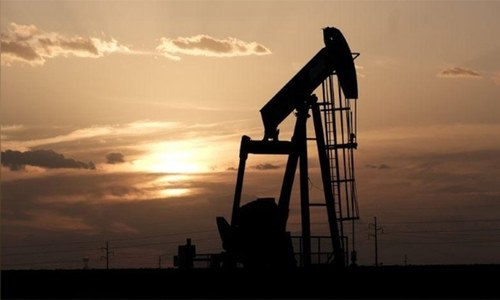US crude crashed to below $15 a barrel on Monday, its lowest level for over two decades, as concerns about a virus-triggered demand shock and lack of storage eclipsed an output cut deal.
West Texas Intermediate (WTI), the US benchmark, fell more than 19 per cent to $14.73 a barrel in early Asian trade, before markets steadied and it clawed back some ground to $15.78 a barrel.
International benchmark Brent dropped 4.1pc to $26.93 a barrel, before rising and stabilising at $28.11.
Oil markets have plunged in recent weeks as lockdowns and travel restrictions to fight the coronavirus around the world batter demand for the commodity.
Read: How destructive have coronavirus and oil price war been for the world economy?
The crisis was compounded after Saudi Arabia, kingpin of exporting group Opec, launched a price war with non-Opec member Russia.
Riyadh and Moscow drew a line under their dispute earlier this month when they and other countries agreed to cut output by almost 10 million barrels a day to boost virus-hit markets.
But prices have continued to fall heavily, with analysts saying the cuts will not be enough to make up for massive falls in demand caused by the pandemic.
WTI was hit particularly hard on Monday as analysts said there were concerns that its main storage facilities in the United States were filling up.
Michael McCarthy, chief market strategist with CMC Markets, said the plunge in WTI “reflects a glut” at the US facility in Cushing, Oklahoma.
The benchmark has now “decoupled” from Brent “with the spread between the two reaching a decade high”, he said in a note.
ANZ added in a note that “crude oil prices remained under pressure, as projections of weaker demand weigh on sentiment”.
“Despite the Opec+ alliance agreeing to an unprecedented cut in output, the physical market is awash with oil,” it said, referring to the Organisation of the Petroleum Exporting Countries and non-Opec partners.
“Concern continues to mount that storage facilities in the US will run out of capacity.”
The US Energy Information Administration said crude inventories in the world's biggest economy rose by 19.25 million barrels last week, adding to the woes of the oversupplied world market.















































